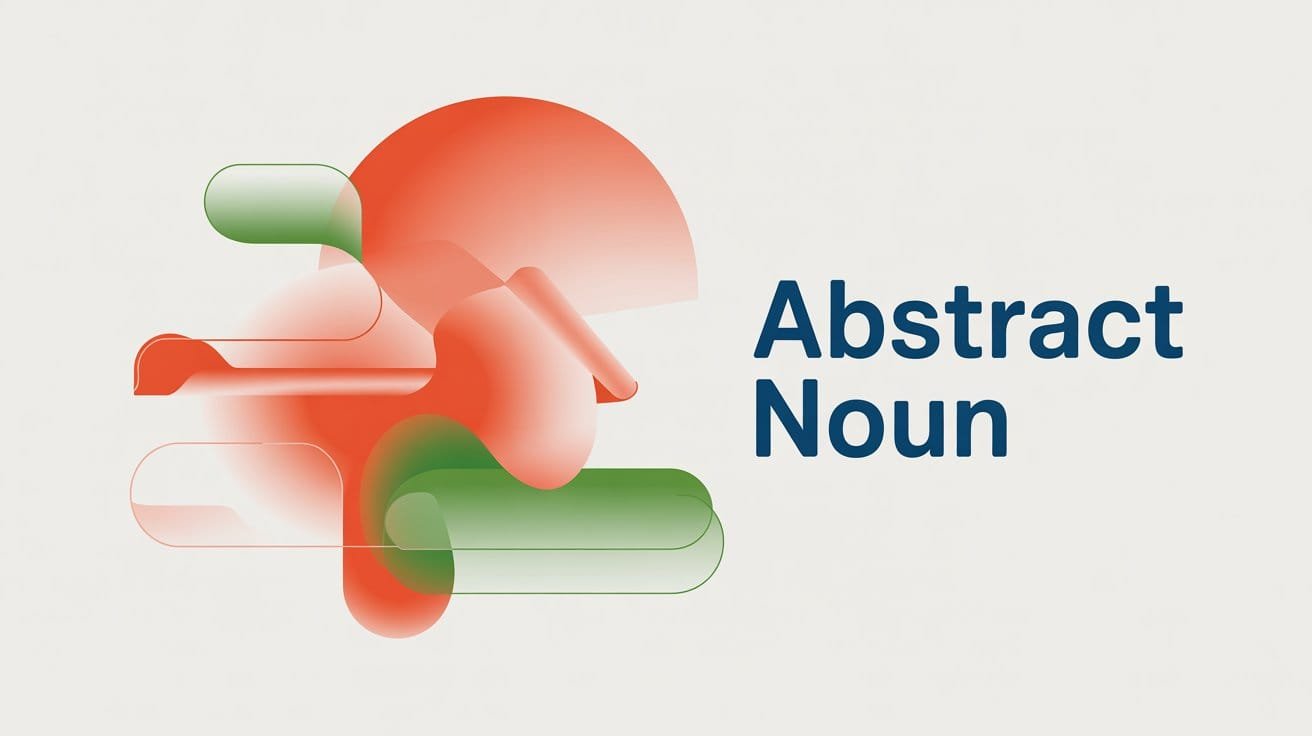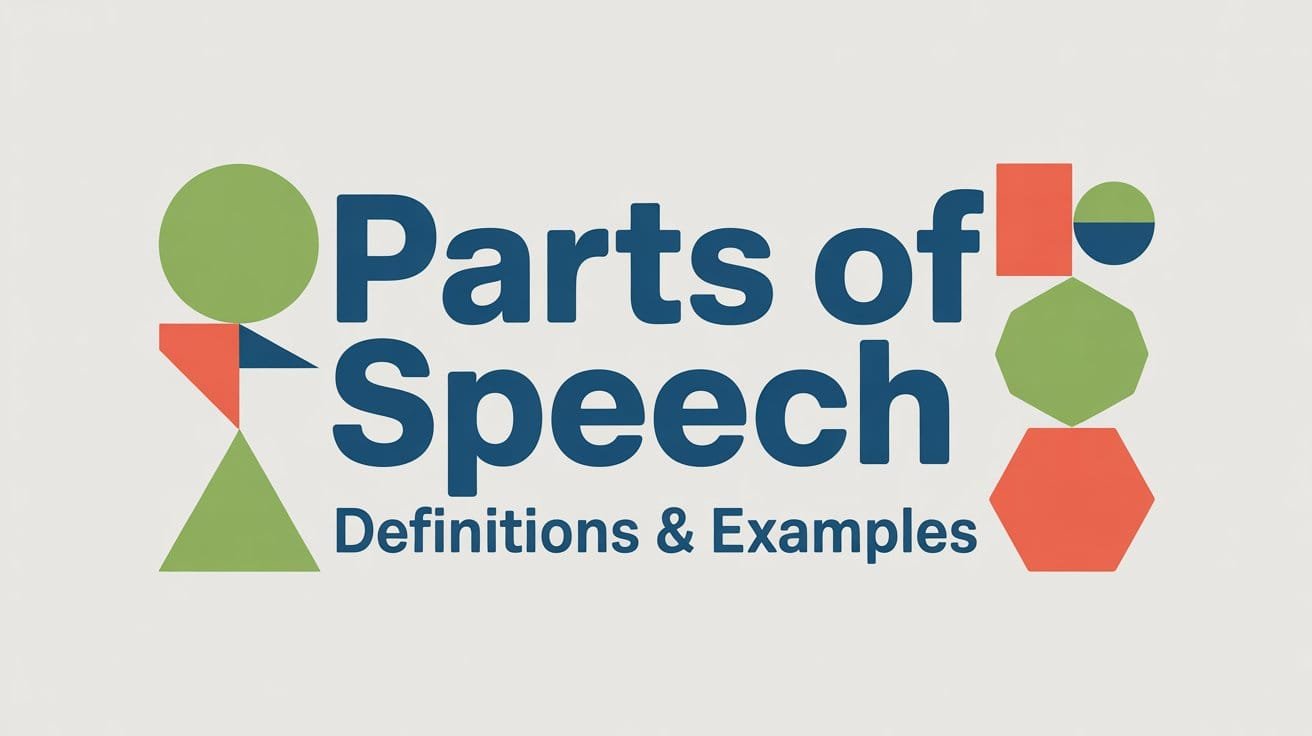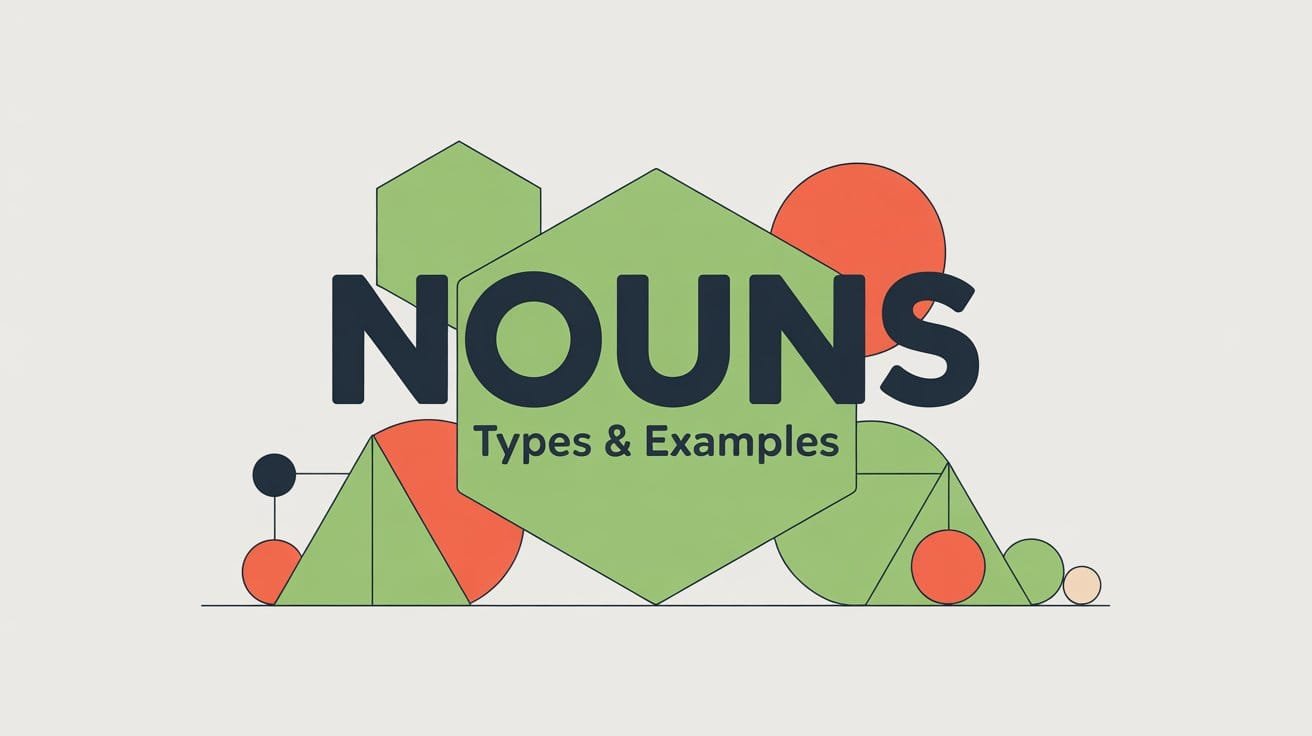An abstract noun refers to an idea, feeling, quality, or experience, something that exists in your mind but not in the physical world. Words like honesty, freedom, anger, and joy are all abstract nouns because they describe something we can think about or feel, but not physically measure.
In this guide, you’ll learn what abstract nouns are, how to recognize them, how they differ from concrete nouns, and how to use them correctly in writing and speech.
What Is an Abstract Noun?
An abstract noun is a type of noun that names something you cannot see, touch, hear, taste, or smell. It represents ideas, emotions, states, or qualities—things that exist in thought or experience rather than in physical form.
Unlike concrete nouns (like book, tree, or cup), abstract nouns describe concepts such as bravery, trust, or happiness. You can feel or understand them, but you can’t interact with them through your senses.
Example:
- Her patience during the crisis was admirable.
→ Patience is an abstract noun because it names a quality, not something you can physically observe.
Characteristics of Abstract Nouns
Abstract nouns have some distinct traits that set them apart from other types of nouns. Once you understand these, it becomes easier to recognize them in sentences.
They refer to things that are not physical
Abstract nouns describe ideas, emotions, or qualities. You can’t see or touch them, but you can think about them or feel them.
Examples: love, honesty, fear, justice
They are often uncountable
Most abstract nouns don’t have a plural form and are not used with numbers or “a/an.” You can’t say “two braveries” or “an honesty.”
Correct: We need courage.
Incorrect: We need a courage.
They are often formed from adjectives, verbs, or other nouns
Many abstract nouns are made by adding suffixes like -ness, -ity, -tion, or -ment to other words.
Examples:
- happy → happiness
- strong → strength
- decide → decision
- move → movement
Common Categories of Abstract Nouns
Abstract nouns can be grouped into different categories based on what they express. These include emotions, states, qualities, ideas, and experiences.
Emotions
These nouns describe feelings that can’t be seen but are often deeply felt.
Examples: love, anger, fear, joy, grief
States or Conditions
These refer to situations or mental/physical states.
Examples: freedom, poverty, peace, chaos, loneliness
Qualities or Traits
These nouns describe characteristics or attributes, often related to personality or behavior.
Examples: bravery, honesty, kindness, patience, loyalty
Ideas or Concepts
These express beliefs, systems, or abstract thought.
Examples: democracy, justice, education, time, truth
Events or Experiences
These nouns represent intangible life events or stages.
Examples: childhood, marriage, growth, career, loss
Abstract Noun Examples in Sentences
To understand abstract nouns better, it helps to see them in sentences.
- Her kindness made a big difference to the new student.
- We should fight for justice in every situation.
- He showed great courage during the emergency.
- Their friendship lasted for years despite the distance.
- She struggled with fear before the performance.
- Honesty is one of the most important values in this company.
Abstract Noun vs. Concrete Noun
The main difference between an abstract noun and a concrete noun is whether you can experience the thing being named with your five senses.
- Abstract nouns name ideas, emotions, or qualities—things you can think about or feel, but not physically touch.
- Concrete nouns name objects or people that you can see, hear, touch, taste, or smell.
Examples for Comparison
| Abstract Noun | Concrete Noun |
|---|---|
| happiness | balloon |
| anger | voice |
| beauty | flower |
| trust | handshake |
| childhood | toy |
Sentence Comparison
- Her confidence impressed the entire team. (abstract)
- Her presentation impressed the entire team. (concrete)
How to Identify Abstract Nouns
Identifying abstract nouns is easier when you focus on what the word represents. If it names something you can’t physically experience, there’s a good chance it’s an abstract noun.
1. Ask yourself: Can I touch or see it?
If the answer is no, and the word names a feeling, idea, or quality, it’s likely abstract.
Example: She felt deep regret after the argument.
→ You can’t touch or see regret, so it’s abstract.
2. Look for common abstract noun suffixes
Many abstract nouns are formed by adding suffixes like:
- -ness (kindness, darkness)
- -ity (ability, sensitivity)
- -tion / -sion (attention, decision)
- -ment (enjoyment, achievement)
- -ence / -ance (independence, importance)
3. Think about what the word expresses
If the noun names a mood, belief, state, or value, it’s abstract.
Example: The students showed great curiosity during the science lesson.
Formation of Abstract Nouns
Many abstract nouns are formed from other words—usually adjectives, verbs, or even other nouns—by adding specific suffixes. Recognizing these patterns can help you identify and build your vocabulary.
From Adjectives
You can turn a describing word into a noun by adding a suffix like -ness, -ity, or -ence.
Examples:
- happy → happiness
- kind → kindness
- curious → curiosity
- patient → patience
From Verbs
Many verbs can become abstract nouns using -tion, -ment, or -ance.
Examples:
- decide → decision
- develop → development
- arrive → arrival
- perform → performance
From Nouns
Some abstract nouns are formed by adding -ship, -hood, or other suffixes to base nouns.
Examples:
- friend → friendship
- child → childhood
- leader → leadership
Using Abstract Nouns in Writing
Abstract nouns are useful when expressing thoughts, emotions, values, or states of being, especially in more formal or reflective writing. However, they should be used with care to keep your writing clear and grounded.
Use abstract nouns to express deeper meaning
They allow you to talk about things that aren’t visible or physical, like beliefs or emotions.
Example: Her dedication to the project inspired the whole team.
Pair them with specific details
Abstract nouns can feel vague if they stand alone. To make your writing more effective, pair them with concrete nouns or actions.
- Instead of: “He showed bravery.”
- Try: “He showed bravery when he stepped in to help during the fire.”
Avoid overusing abstract nouns
Too many abstract nouns can make writing feel heavy or unclear. Balance them with concrete details to keep your sentences vivid.
FAQs About Abstract Nouns
What is an abstract noun?
An abstract noun is a word that names something you cannot see, touch, or physically sense. It refers to ideas, emotions, qualities, or experiences—like hope, freedom, or confidence.
Can abstract nouns be pluralized?
Most abstract nouns are uncountable and do not have a plural form. However, a few abstract nouns can be used in the plural when referring to different instances or types.
Example: She shared her thoughts during the meeting.
Are abstract nouns always uncountable?
Many are uncountable (like honesty or love), but not all. Some can be countable depending on how they’re used.
Example:
Knowledge is uncountable.
A belief or an opinion can be countable abstract nouns.
How do abstract nouns differ from concrete nouns?
Abstract nouns refer to things that can’t be physically sensed, like kindness or justice. Concrete nouns name things you can see or touch, like table or car.



